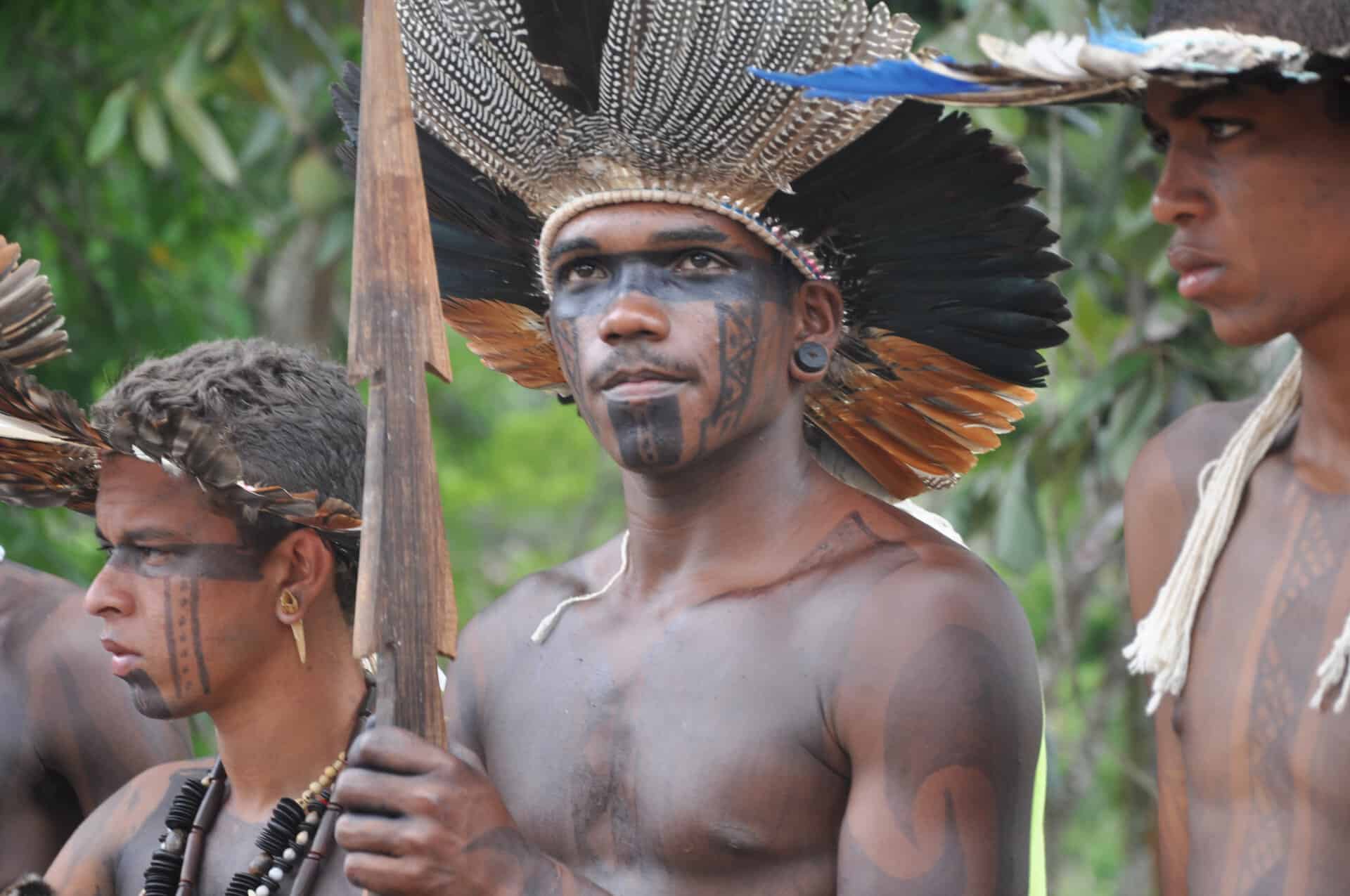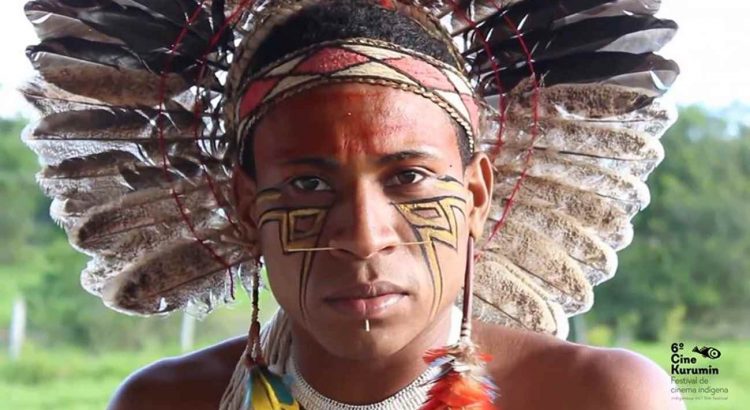Latin America
Related: About this forumVictory for Brazil tribe as hotel group cancels plans for luxury resort
Victory for Brazil tribe as hotel group cancels plans for luxury resort
by Reuters
Monday, 18 November 2019 23:55 GMT
Indigenous group Tupinambá de Olivença, numbering 4,631 people, has been fighting for the land to be designated as a reserve since 2003
By Victoria Waldersee and Anthony Boadle
LISBON/BRASILIA, Nov 18 (Reuters) - A Brazilian tribe that has been fighting for 15 years to preserve land they use to gather food won a victory on Monday when public pressure made Portuguese hotel group Vila Gale cancel plans to build a 500-room luxury resort on the Bahia coast.
Indigenous group Tupinambá de Olivença, numbering 4,631 people, has been fighting for the land to be designated as a reserve since 2003. Brazil's indigenous rights agency Funai approved the request in 2009, and Brazil's second-highest court unanimously voted in favour of the Tupinambá in 2016.
But the tribe still requires final sign-off from the Ministry of Justice and the president himself for the protected status of the territory to become official. Despite multiple requests from the tribe, nothing has happened since 2016.
Last week, Brazil National Human Rights Council urged the Bolsonaro government to speed up the final demarcation of the Tupinambá land, which is located in the coastal Atlantic forest in southern Bahia, known for its coconut tree-lined beaches that attract millions of tourists each year.
Brazil's President Jair Bolsonaro has not yet made a decision on the specific case of the Tupinambá but stated on multiple occasions that he does not intend to sign off any more territory for indigenous groups, saying earlier this year there is "too much land for too few indigenous people."
More:
http://news.trust.org/item/20191118232608-o3h2k/




Google translation from Portuguese:
The marks of the Tupinambá persecution
Federal Public Prosecutor presents undisputed evidence against an agent of the Ilhéus Federal Police (BA)
November 6, 2012
Photo: Patrícia Navarro / Cimi
Renato Santana
from Brasilia (DF)
With his forehead against the wall and supporting the kneeling body, Tupinambá Jose Otavio Freitas Filho could not rub his eyes, burned, after an agent of the Federal Police of Ilhéus, Bahia, launched jets of pepper spray on the indigenous, who had his hands cuffed. "Where are the guns?" Shouted the police as they gave electric shocks through the body of the Tupinambá, including the genital region.
Tapas, kicks, stomps, hair pulling. On June 2, 2009, José Otávio and four other Tupinambá da Serra do Padeiro - Osmário de Oliveira Barbosa, Carmerindo Batista da Silva, Ailza Silva Barbosa and Alzenar Oliveira da Silva - were attacked by state agents at Santa Rosa Farm, area retaken by the indigenous people and cause for intense conflict with landowners and target of attacks of the Federal Police. The situation became more tense after the lands were part of the demarcation report published by the National Indian Foundation (Funai) months earlier.
But more than victims of the usual abuse of power by the Brazilian police authorities, the five are part of a long list of Tupinambá Indians who, since the mid-1930s, have suffered from a crime that is not only registered under dictatorial regimes, but also in full democracy: torture - which according to Brazilian law is the imposition of physical or psychological pain for cruelty, intimidation, punishment or for obtaining a confession or information and even for pure sadism.
“All life was like this. In the old days they would pick us up and pull our nails out, tear the meat slowly on the knife. They raped the women and beat the machete. It wasn't that long ago; it was now, a few decades ago and continues ”, explains Chief Rosivaldo Ferreira dos Santos Tupinambá, but known as Babau. From the time recalled by Babau beyond the 19th century until discovery, the Tupinambá never surrendered to domination. However, the past seems to repeat itself - springing to the skin in torture.
Friend Survey
At the Itabuna Forum (BA), on October 18, the five victims testified to the Federal Judge in part of the Public Civil Action for Collective and Individual Moral Damage filed by the Federal Public Prosecution Service (MPF) of Bahia against the Federal Government. The prosecutors also opened an inquiry to find out those responsible for the torture, attested and proven by reports of the Legal Medical Institute (IML). However, the Federal Police themselves investigated the conduct of federal agents, and the investigation found otherwise, with no officers involved in the June 2, 2009 torture being arrested.
For the prosecutor of the Republic Flávia Galvão Arruti, based on the report of the indigenous and expert reports, “it is undisputed that the application of electric shocks and use of pepper spray were nothing more than police violence, torture and disrespect for fundamental rights. In other words, the police action was totally contrary to the legal dictates, constituting true torture ”. Prosecutors have concluded that torture exists when the authority and its agents reduce or nullify individual liberties, hurting constitutionally guaranteed rights of citizens.
“They came shooting”
The recent history of state violence against the Tupinambá is vast. The Federal Police systematically attempted, by order of court decisions or other not so clear motives for the indigenous people, to evict the Tupinambá from the retaken areas. On June 2, 2009, the Federal Police's allegation is that the action of the agents that culminated in the allegation of torture was to find out in the act that the community was committing the crime of possessive scraping - invasion and violent expulsion of a person from their property. .
The indigenous claim that the police arrived shooting. The community, in turn, did not wait for the attack. On the contrary, it was waiting for the television station to report on the struggles of the people. When they saw cars approaching, they understood that it was the reporting team. It only gave everyone time to run into the woods. The five failed and in the cacao houses / barges were caught by the police. The torture, according to the testimonies of the natives obtained by the newspaper Brasil de Fato, began on the spot.
Tortures
Upstairs were José Otávio, Osmário, Carmerindo and Ailza; Alzenar was downstairs. When they arrived, the federal agents shouted for the natives to put their hands on the wall. Soon after, they asked the five to lie on the floor. One by one was handcuffed. Ailza said police officers called them "plague", "thieves" and "misfortunes". More than four times the indigenous woman's hair was pulled hard. Men were slapped on the back of the neck, face, ears and back, and kicked in the ribs and stomps while handcuffed to the floor.
According to Alzenar, after he was removed from the cocoa barge he was taken by three policemen to a greenhouse. Kneeling, he listened to the police officers repeatedly asking about the location of indigenous weapons. Since the response was unsatisfactory, he received shocks to the back of his neck, side of the body and below his right arm. With the others it was no different. Carmerindo, when handcuffed, caught and had his eyes flooded with pepper spray. On the floor, it was stepped on by the agents. Osmário reported that while asking questions, the police kept the stun gun stuck to his body, which made him tremble from head to toe. In the report of the IML, there is no lack of records of electrical burn marks on the bodies of the two indigenous people who suffered the shock: José Otávio and Osmário. In the others, varied bruises.
At the end of the torture session, the natives were placed in the truck body and taken to the Ilhéus Federal Police Station. According to the medical experts' analysis in the MPF complaint, "the multiplicity and topography of the lesions suggests they were caused by cruel means." “The evidence is overwhelming. There is no doubt that torture did indeed occur. The agents themselves assume they used the shock, for example. But they say the indigenous people reacted. How can five indigenous people present such a danger to a significant number of well-armed, equipped, prepared and unexpected police officers? ”Asks Adelar Cupsinski, an attorney accompanying the case and legal advisor to the Indigenous Missionary Council (Cimi).
In analyzing the expert data, prosecutor Flavia concluded that the time required to immobilize a suspect by law enforcement officials is 20 seconds. The agents used the stun guns for four minutes. "It is evident that this excess (or that the torture) occurred because the occupants were Indians, a minority already persecuted and viewed with bad eyes by the Federal Police," said the prosecutor.
Contested version
The Federal Police then refute torture on the grounds of self-defense and justify that they went to the site to investigate the possessive debris, as it was a resumption of the Tupinambá from farm lands, even though the territory was entered into the Funai Declaratory Ordinance as part of the occupation. indigenous culture proven by anthropological, land and environmental studies. What the Tupinambá point out is in line with the police thesis.
On May 30, 2009, indigenous people claim that federal police officers entered the area and set fire to homes. The community ran into the woods and managed to stay on the farm. Days later comes the new attack that culminates in the torture of the five. “It is already well known that the Federal Police often acts with excessive violence on the problems involving the resumption of farms in areas historically occupied by indigenous people. And the present case is configured as another unreasonable action by the Federal Police ”, concludes the MPF / BA prosecutor.
If the Union is convicted, it must pay compensation of R $ 500,000 to the community of Serra do Padeiro and to the indigenous victims of the allegation of torture. “In addition to compensation and although the perpetrators have not yet been identified, this action is important to show that torture is still practiced by the state and that it needs to be banned. This is unacceptable, ”ponders Cupsinski.
https://www.brasildefato.com.br/node/11068/
